Be a Logistics Service Provider Singapore
Steps To Starting A Transport And Logistics Business
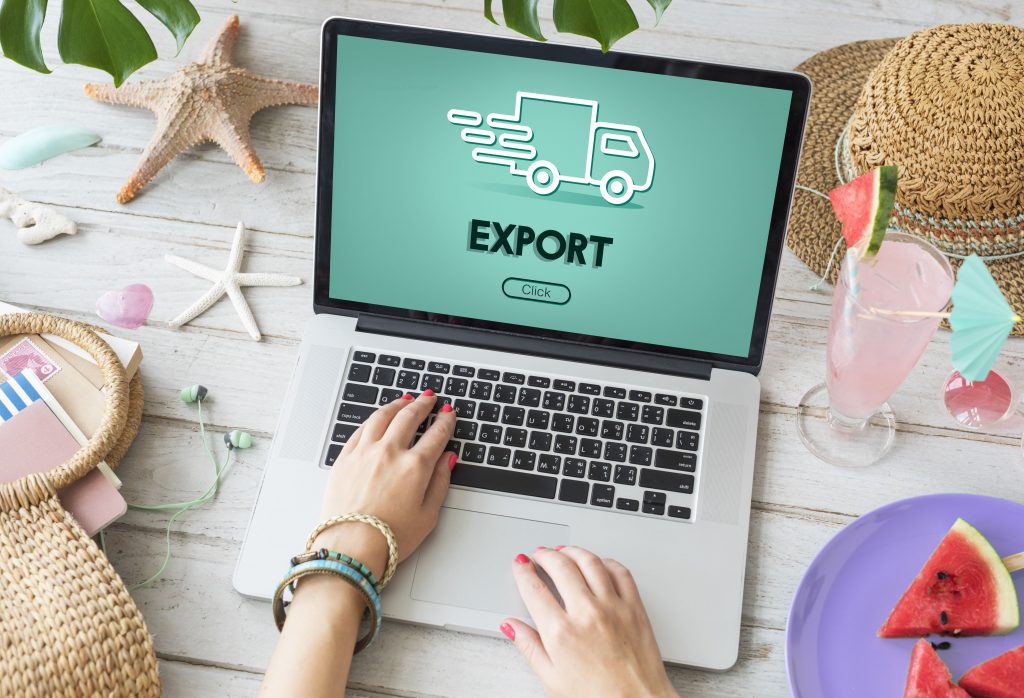
I have ever wondered how you can start your own logistics service provider Singapore? First, let me tell you that getting into the transport business is not the most challenging. What is difficult is scaling up and making sure your entire operation runs smoothly. The industry has excellent earning potential, but it will require your time, hard work, and money.
Here are some points that will help you understand your future potential by looking at the steps to starting a transport and logistics business. Whether you want to focus on trucking to deliver goods in Singapore or work with international shipping, you will need these steps to survive the industry longer than most.
Develop a business plan and decide on the transportation service you will provide.
Figure out where you want to fit in within the logistics industry. There are different ways to operate, such as being a bulk hauler (such as transporting coal, ore, or grain), a tanker hauler (like water or fuel), or even an over-dimensional vehicle (catering for large or oversized freight).
You may choose to be a general contractor who provides numerous services or specialise in one area only, such as a retail food distributor – either way, make sure you do plenty of research into what is required before.
The other thing that needs to be considered is what type of freight the vehicles will be carrying – hazardous materials like fuel or chemicals require specialised vehicles and licensing; refrigerated trucks require different operating conditions than dry freight.
Your choice should be based on your experience, knowledge, and expertise. If you have been involved in trucking for years and have connections within the industry already, starting your own haulage company might be easier than starting from scratch with an entirely new form of transport.
Determine your startup finance plan.
Before you approach anyone for finance, it’s essential to know precisely how much money you will need and where that money will go. This is where a well-planned business plan becomes crucial.
Secure your funding. Once you have your budget in place, it’s time to get those funds rolling in. As a new entrepreneur starting, the biggest obstacle you’re likely to have is convincing banks and other financial institutions that you’re worth taking a chance on.
Set up your office. Get appropriate certifications, licenses & permits.
You will need an office where you can store your administrative documents and a space to meet with clients. Choose a central and accessible location, so that client meetings are convenient. Consider registering your business name if you haven’t done so yet. This protects the company’s name and gives you credibility when dealing with other businesses.
Invest in a few good trucks and trailers and other equipment you will need.
Whether it’s a single truck or multiple vehicles, this is one of the most significant investments you have to make when starting up. Do some market research to find out what options are available for financing vehicles for transport businesses so that you don’t have to pay everything upfront.
There are also different vehicle combinations you can use to get the job done. For example, B-double combinations are generally used for long-haul journeys. In contrast, road trains can be used for long-haul trips in remote locations that don’t have suitable parking facilities for long combination vehicles (LCV), such as B-doubles.
You’ll also need to decide whether you want to specialise in road freight only or if you want to operate cross-border and internationally. If so, what type of freight will you carry?
What size of trucks do you plan on operating? Do you want to start with a tiny truck and build from there? Or do you want to go big from the start and buy a fleet of vehicles? What routes will you be operating on? And what is your target market? Will it be local deliveries only, or long distance as well?
These are just some of the questions you need to have the answers ready for.
Research your competition.
The transport and logistics industry is highly competitive, so you need to do your homework before setting up shop. First, check out the local market to see any gaps that your new business can fill.
Look at what other companies in the industry are doing. What services do they offer? How much do they charge for their services? Are their drivers full-time or contractors? You can also visit trucking conferences, exhibitions, and trade shows to learn more about the latest trends in the industry.
Market your services and build your network.
It would be best to let potential clients know about your transport and chain logistics business. So start by creating a website and social media accounts (Facebook, Twitter, Instagram) for your company. You can also use paid advertising on search engines (Google AdWords) and social media platforms (Facebook Ads) to get the word out there.
Your startup will be up against established businesses that have been in the industry for years; so it’s essential to build relationships with other players in the industry right from the start of your journey.
You know both you and your clients want food that is fresh and at a fair price. But with tons of logistics companies to choose from, it used to be impossible to find a one-stop shop for all your needed logistics support and cold-chain management. TreeLogs changes that. Sign up with us so we can work with you to understand your business needs and customise a plan that works best for you while providing unmatched services that help manage your cold-chains with ease.
Freight Shipping: Temperature-Controlled Trucks
All About Temperature-Controlled Shipping

You’ve probably heard the term “cold chain logistics,” but do you know what it means? Simply put, cold chain logistics includes all aspects of transporting perishable goods from their source to the consumer. It’s a complex process involving players from producers and distributors to retailers and the end consumer. The “chain” refers to the supply chain that delivers products from factory to market from a transportation standpoint. Food is one of the most famous examples of a product transported via cold chain logistics. Temperature-controlled trucks are one of the common examples of temperature-controlled freight shipping.
Using temperature-controlled shipping for your business is the best way to ensure that your goods will arrive in the same condition as when you shipped them. Since a breach of temperature control could result in significant losses, creating and following through a transportation plan from the point of origin to the destination is imperative. The key is to ensure that your temperature-controlled shipping methods meet the industry standards.
What is Temperature-Controlled Shipping?
Temperature-controlled freight shipping is the transport of sensitive goods to climate conditions. Such climate-sensitive goods require special handling and storage to maintain stable temperatures from dock to dock. This is possible with temperature-controlled storage and refrigerated trucking.
Ever since creating a cold chain logistics solution, shipping perishable goods over great distances has been common practice. However, despite their groundbreaking effect on the world of time- and temperature-control safety foods, they are not foolproof.
Limitations of Temperature-Controlled Shipping
- You can expect that the refrigerated truck will have quite a bit less capacity for your load than what you are probably used to dealing with. These trucks contain temperature control equipment and a few extra layers of insulation in the walls of the trailer, which in turn results in less space for goods.
- Temperature changes inside a vehicle can be challenging to control without consistent refrigeration, especially when dealing with extreme weather conditions.
- A truck’s engine must constantly be on for HVAC systems to work, which means additional fuel costs and pollution for every hour the vehicle is running.
- While in transit, cargo may be exposed to extreme temperatures and high humidity levels if the driver makes frequent stops at small warehouses or distribution centers instead of extensive facilities equipped with temperature-sensitive docking stations.
- Some carriers may not have adequate insurance coverage for climate-sensitive products. Before working with any page unfamiliar with temperature-controlled transportation or handling perishable or temperature-sensitive goods, you will want to look into this.
Secondly, working with a solid route planning system can significantly help cut down on unnecessary delays and minimise risks due to road closures and heavy traffic areas. If, for whatever reason, your carrier gets stuck in rush hour traffic with a load of frozen goods in the middle of summer in Texas, that reefer container will only be able to do so much to keep the temperature right where it needs to be.
You can take better preventative measures to ensure they do not become an issue by understanding the difference between dry shipping freight versus temperature-sensitive perishables and the inherent risks involved.
Rules for temperature-controlled shipping
No one regulatory body has the final word on what constitutes a fully-compliant cold chain. Currently, the regulations that a supply chain logistics service faces may vary. In addition, these regulations can differ from product to product within a single country, much less between countries. Fortunately, there are some commonalities across all rules about cold chain compliance that you can count on to help keep you on track.
USA’s Food and Drug Authority (FDA) has made it clear that shippers want to avoid “failure modes” with their shipments. A failure mode is when a load is exposed to outside temperatures that don’t meet its requirements. A failure mode is not necessarily a “failure” in the strictest sense of the word because there may not be any adverse effects on the product.
However, this doesn’t mean you can ignore temperature control during shipping. You have to take active measures to control the temperature of your shipments. The FDA expects you to use temperature-controlled shipping containers and materials along with monitoring systems and processes.
A retail food distributor considers cold chain logistics companies irreplaceable. This is because a cold chain maintains the temperature of perishable goods at critical points throughout the journey. This means they need refrigerated transport—from refrigerated trucks in storage facilities to refrigerated containers shipped by air or sea, even individual freezer packages like dry ice for final delivery directly to consumers.
TreeDots has developed a new business arm, TreeLogs, that focuses on providing cold-chain logistics support to provide food market bargains and delivery as your one-stop shop. So whether you’re here for the group buys or looking for procurement for your F&B business, sign up with us now to find a suitable service for your needs.
Tips to Look for F&B Suppliers in Singapore
Find The Best Wholesale F&B Suppliers in Singapore
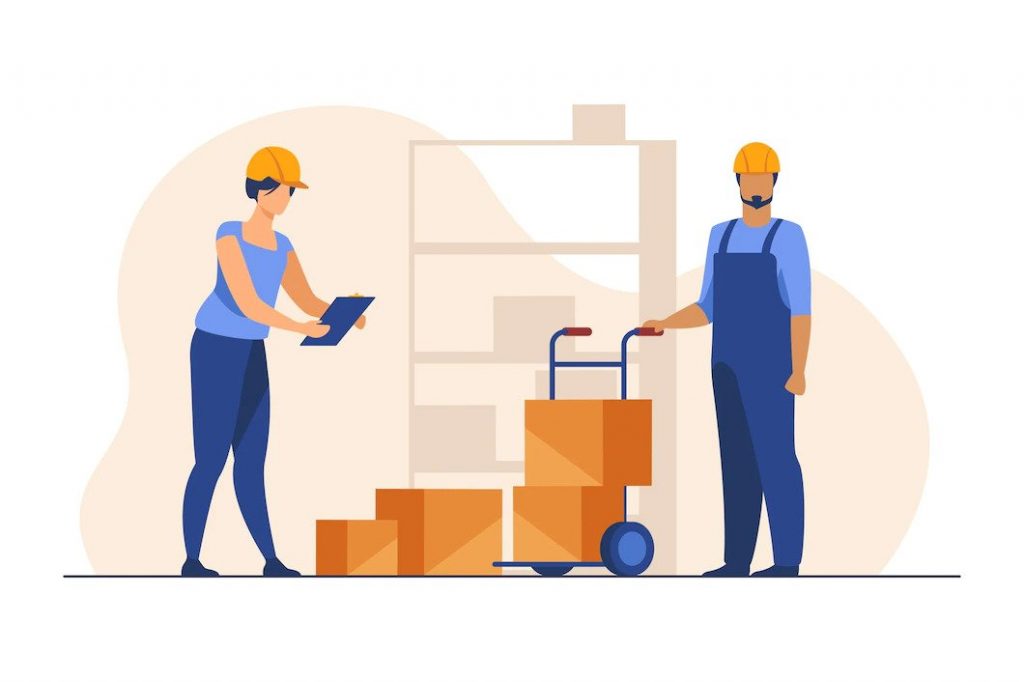
If you’re just starting a new F&B retail business, you need products to sell. It doesn’t matter if your products are handmade on-site, freshly baked, or stocked on the shelves; you need somewhere to get them in abundance. But that doesn’t mean you need to make or manufacture them yourself, nor does it mean you have to pay the total price. You can produce them yourself or buy from external wholesale F&B suppliers in Singapore. Likewise, you can find wholesale suppliers who meet your minimum requirements at the right price. So how do you find suitable suppliers for your business? It may seem like a daunting task, but it’s not a long one either if done right.
Identify your needs
What you’re looking for in a wholesale supplier will depend entirely on the type of F&B business you have. Some F&B companies don’t even require the involvement of a supplier. For example, if your product is made fresh and on-site, you may only need to buy raw ingredients and supplies from an external seller.
However, if you’re selling stocked items such as bottles of wine, packets of chocolate, or frozen meat products, you need to find a wholesale retailer who can supply you with enough stock to meet your demand at the right price. So the first thing you should do is create a list of your needs. This will help you narrow down your search and save time finding the best wholesale suppliers.
Here are some factors to consider when creating your list:
● Are they reliable? You need to know that they’ll be there when you need them and that they will deliver products on time, every time.
● Do they provide good quality products? They should meet any safety standards required by law or set by your business.
● Finally, do they offer competitive prices? In addition to meeting your minimum requirements, they should be able to provide their products at a low cost so that your business can make a profit.
Go to Google for Domestic and International Wholesale Suppliers
The first step to finding wholesale suppliers is the same as any good business strategy – do your research. Do a quick Google search, and you’ll find plenty of options. Check out the top results and note their prices, product offerings, delivery options, payment methods, and minimum order requirements. Some may even offer free shipping if you meet their minimum order requirements.
Contact the Manufacturer to Find Their Wholesale Suppliers
Get in touch with the manufacturers or food distributors in Singapore. Ask them for wholesale suppliers in your area if you can’t get in touch with a supplier, head over to the product’s web page and try using the contact form.
If they don’t have a contact form, try to look for email addresses or phone numbers you can use to get in touch. The manufacturer will probably know who their wholesalers are and be willing to direct you in the right direction.
Ask for Referrals From Local Business Networks
Ask fellow entrepreneurs. Join your local business network and ask if other businesses have any recommendations on wholesale suppliers for food supply chain businesses. If they are happy with their current supplier, they will share this information with you.
Attend Local & International Trade Shows
Attending wholesale trade shows is one of the best ways to find new suppliers in the food business industry. You will get an opportunity to meet retailers from all over the world who sell products similar to those you intend on selling or already sell.
Finding suitable wholesale F&B suppliers in Singapore is difficult because you can use many strategies to get started. Hopefully, now you’re well on your way to finding the suitable wholesale F&B suppliers in Singapore for your needs, whether that’s a restaurant or a distributor of restaurant supplies. Whichever specific options you choose, you should have all the tools at your disposal to make an effective and educated decision.
TreeDots has developed a new business arm, TreeLogs, that focuses on providing cold-chain logistics support to provide food market bargains and delivery as your one-stop shop. So whether you’re here for the group buys or looking for procurement for your F&B business, sign up with us now to find a suitable service for your needs.
Find F&B Suppliers in Singapore for your Restaurant
Find The Best Value in F&B Suppliers Singapore for your Restaurant
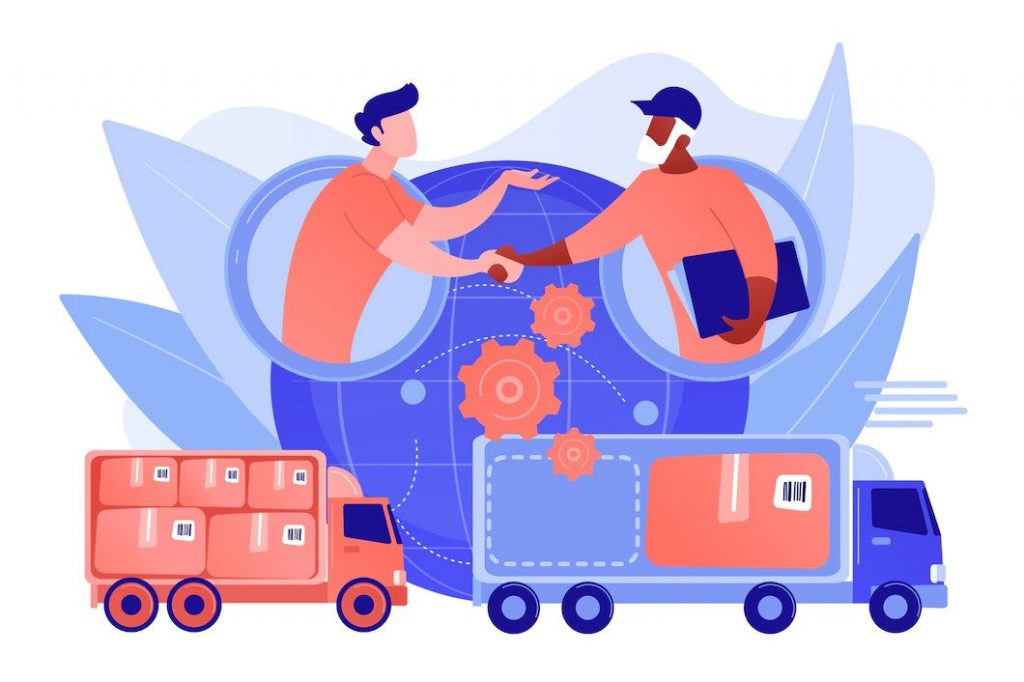
Restaurants need to have good supply and management plans to be successful. Most restaurants rely on a team of vendors to keep supplies moving and food on the menu. When choosing F&B suppliers in Singapore, you need to keep in mind a few things. Firstly, consider how your restaurant differs, evaluate your specific needs and requirements, and select a plan that best fits your situation.
Determine if you Need a Specialty or a General Supplier
You must first consider the type of food your business is selling. Be clear on what you want to sell. This is necessary because some suppliers have limitations on what they can provide. A key point for any food supplier is whether it will be a general or specialized company.
Some food distributors in Singapore offer various products from meat, dairy, produce, grains, and pastas. A restaurant may consider a general food supplier if it plans to serve multiple types of cuisines. Specialized suppliers may offer just one product type, such as fresh produce or meats only. These suppliers will fit the needs of a restaurant that specializes in one cuisine or wants to serve higher-quality meats or produce than the general food supplier offers.
Analyze the Cost of the Food you're Purchasing.
Cost is an obvious consideration for any restaurant with bottom-line profitability in mind. Therefore, establishing a relationship with F&B suppliers Singapore that provide quality ingredients at competitive prices makes excellent business sense. Furthermore, suppose your menu depends on fresh produce. In that case, having a supplier who can guarantee consistent supply and quality is critical to achieving customer satisfaction, increasing customer retention, and boosting sales.
Please inquire about the payment terms and delivery options before purchasing from a food supplier. For example, do they accept credit cards? Do they require a down payment? What are their shipping fees like? Ask these questions beforehand, so there won’t be any surprises later!
Each food supply chain business will have its pricing standards where it could be the price per pound/unit/each (depending on the product). For example, some suppliers may sell at a lower cost per unit but require a minimum order amount, while others offer lower prices when purchasing in bulk.
Consider your Delivery Schedule
Another important consideration is a food supplier’s delivery schedule. Some suppliers offer daily deliveries, while others only deliver once or twice per week. The size of the restaurant and its volume of business will dictate what delivery schedule it needs. A small restaurant that has just opened may need fewer deliveries, while a busier restaurant that serves more customers will need more frequent deliveries. For example, an upscale steakhouse with an established customer base may require daily products. On the other hand, a new neighborhood pizza parlor may be fine with two deliveries per week during its first year in business.
Don’t forget to ask if they have any coupons or promotions to save you money on delivery costs. You also need to consider where they’re located relative to your business so that it won’t take too long for them to deliver orders!
Choose Your Food Suppliers Wisely
With so many companies in the food business industry providing supplies, it can be hard to choose what will work best for you. Whether you’re looking for a unique product or a broad selection of options, there’s no shortage of companies to choose from. As a result, your choice should depend on much more than just price per unit; you should instead value suppliers with the product lines to meet your needs and give your business room to grow.
A good rule of thumb is to choose two or three different suppliers and compare prices between them to get the best deal possible. However, keep in mind that sometimes buying from one supplier might save you money because they have bulk discounts or other perks associated with larger orders than purchasing smaller quantities from multiple zones will allow for.
TreeDots has developed a new business arm, TreeLogs, that focuses on providing cold-chain logistics support to provide food market bargains and delivery as your one-stop shop. So whether you’re here for the group buys or looking for procurement for your F&B business, sign up with us now to find a suitable service for your needs.
F&B Suppliers in Singapore: Safety and Track Record
The Importance of Credentials and Safety Regulations of Food Suppliers
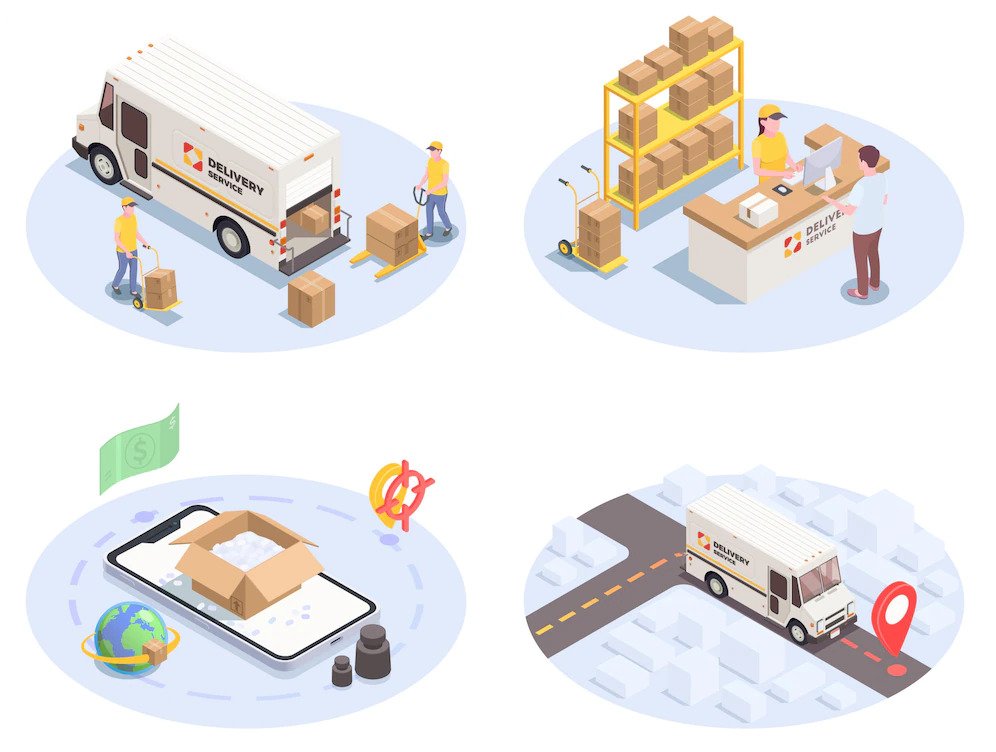
A food and beverage business is one of the largest industries globally, providing an array of products such as food and drink, including fresh produce and meats to catalogues, alcohol, and even cigarettes. F&B suppliers in Singapore that are looking for reliable food suppliers always try to make sure they find the best ones. But how do you define the term “best”? Are these companies certified? Do we have confidence in them? Can they guarantee the freshness and quality of their products?
As a food manufacturer, if you find yourself trying to create your shortcuts and take a more straightforward approach, you will likely cut corners and hire the wrong food distributors in Singapore. This can end up costing you in more ways than one, including less than satisfactory services that lead to increased cost for poor quality and services.
Here is a quick look at some of the most important things you need to consider before hiring a food supplier.
Know the Different Food Suppliers
Even though there are many types of food businesses, they all have the same basic need: supplies of good-quality products that can be delivered on time at competitive prices. And while this may sound simple enough, finding the right supplier can be more difficult than it appears.
When we talk about food suppliers, we’re talking about businesses that provide products to restaurants, quick-serve eateries, cafeterias, and other establishments in the food industry. The kinds of products these businesses get from suppliers include (but aren’t limited to) meats, cheeses, and other dairy products, raw ingredients for making food items, and beverages.
In general, when people talk about food suppliers, they’re referring to food wholesalers or distributors. Wholesalers take ownership of products from manufacturers and sell them to retailers, who then sell them to consumers. On the other hand, distributors do not own the products they distribute. Instead, they act as independent sales agents for manufacturers and facilitate a transaction between the manufacturer and retail store without taking possession of any goods themselves.
There are many types of food suppliers in the industry, but we’ll focus on these four:
Manufacturers – These are companies that produce food products. They will often specialize in a specific product type, or they may be generalists that provide a range of products. If a supplier is a manufacturer, they may have their brand(s) directly to the customer.
Primary suppliers: These companies supply raw ingredients to manufacturers and other organizations. For example, meat processors often use direct suppliers for their meat products.
Wholesalers – Wholesalers take ownership of products from manufacturers and sell them in bulk quantities to retailers, who then sell them to consumers.
Distributors – Distributors are responsible for bringing the product from the manufacturer to a retail store (or restaurant). They often deliver the product to various locations on behalf of the manufacturer and may also be responsible for selling it directly to the end-user if required.
Know their credentials from the background, licenses, certifications, and sanitary conditions.
Make sure that all the legal documents check out. They should have the required certifications and licenses to buy and sell food products. Such permits are issued by the government or other authorities that authorize their food supplier operation. A license is a proof that they have legally complied with all requirements set by the law for their industry.
Aside from those, inquire about safety requirements. Check whether they follow the food safety norms while sourcing and storing the raw materials. Consider those with high sanitation standards on their premises and those who practice safe food handling procedures to minimize contamination.
Find out if they have any experience supplying goods to restaurants or cafeterias. Make sure that the foods are packed to ensure they won’t be exposed to extreme temperatures and other conditions that can compromise quality. The best food suppliers will pack foods in a way that preserves freshness and makes them easy to ship. They usually have their own food supply chain business or collaborate with a reliable cold-chain logistics company to achieve this.
The incredible diversity among suppliers in the food business industry makes it impossible to cover everything. There are just too many suppliers and too many things to consider about them. In other words, this isn’t an exact science. However, the guidelines we covered above should at least point you in the right direction toward finding everything you need from a wholesaler or supplier in today’s market.
TreeDots has developed a new business arm, TreeLogs, that focuses on providing cold-chain logistics support to procure food supplies and their delivery services. We offer multiple options to fit your needs, so fill up our contact form to get started.
Look for these Qualities in your Logistics Solutions Singapore
Qualities of a Trusted Logistics Provider
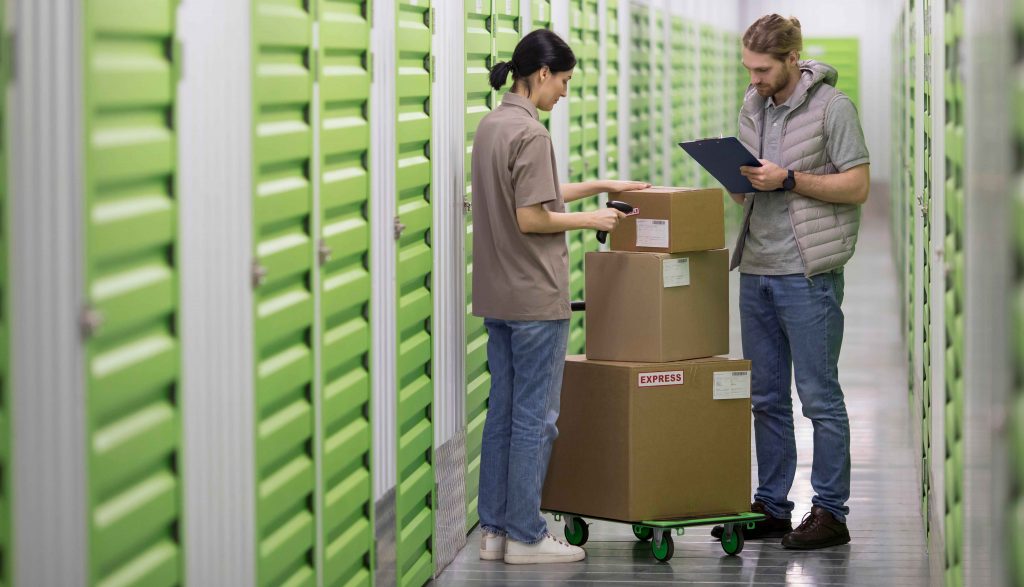
Finding the proper logistics solutions in Singapore is one of the most important things for your business. The type and level of service offered by a leading logistics provider can often be the difference between having an excellent eCommerce experience or fighting with vendors for shipping quotes, delays in shipping, and damages during transport. You need a logistics partner that will provide top-quality care for your goods and products and take care of all the small details.
The best and most reliable logistics service provider for B2B e-commerce businesses has a long-standing reputation as a reliable pick. They have the experience necessary to handle the most complicated deliveries, including making sure all of your products arrive on time and without damage.
It’s essential to choose a logistics provider you can rely on. Selecting the best provider means that your business is set up for success when you make your first sale online. Knowing that all of your shipments are handled properly and efficiently means you can sit back and enjoy your success as it rolls in overtime.
The best logistics providers for your B2B eCommerce business offer flexible services, so you only pay for the options you need.
The best transport and chain logistics are flexible, which is why you need to research and find a company that only provides the services you need. Flexibility is one of the most sought-after qualities in a determined B2B logistics provider. Shipping can be expensive, so finding a shipping business that offers flexible options will guarantee that you only pay for the shipping services you need.
For a newly launched B2B eCommerce business, supply chain planning and management can be a significant task. When you’re focused on selling your product and marketing it to your audience, logistics can seem like an afterthought. The problem is that, with e-commerce, logistics is never an afterthought. The proper fulfillment provider will help your business grow faster and reach more customers by streamlining many details that go into shipping items cross-country or around the globe.
For instance, if you need to store goods in warehouses and don’t need any delivery services, you should get away with a smaller provider. Likewise, if your business only processes small orders, you may not require a complicated shipping management system like UPS or FedEx.
Find out what services your B2B eCommerce logistics provider offers so that you can determine whether they provide the right combination of low cost, optimal functionality, and industry-leading reliability you require for B2B eCommerce.
Look for a provider that offers reliable and affordable shipping options.
A trusted logistics provider should offer reliable, affordable shipping options. Of course, you want to choose a company that provides reliable rates, fair and reasonable terms, and convenient delivery times. But there’s more. You also want someone you can trust to be an extension of your business – someone who will take good care of your shipments and give you insight into how they’re getting from Point A to Point B.
The best logistics companies have the technology to keep their clients informed at every shipment stage.
Trust is a significant factor when looking for a new shipping provider, but how can you know if you trust them? The best logistics providers take security and peace of mind seriously, offering to track all packages so you and your customers know where they are at all times. They also have easy-to-use billing tools and dedicated customer support teams who will return your calls or emails within 24 hours.
The best logistics providers have the experience of knowing how to package different products so that they arrive safely.
You have products that you need to be delivered to the distribution center at your business. There are different types of products that you need to be shipped. Your company is not so large that it has its fleet of trucks and resources at its disposal, and it’s not that small either. You’ve got clients all around, so you want to make sure your distribution service provider is up in terms of paperwork, handling fees, and delivery times.
It isn’t just about shipping in delivery logistics—it’s also about providing excellent support. This sets a company apart from the competition. A team must maintain best practices to keep valuable inventory safe during transit. Customers should feel secure that they will get the highest level of customer service possible and that their products will get delivered in even the worst conditions.
The best logistics companies work with a wide range of companies, allowing them to know and connections in the industry.
When it comes to finding a reliable, quality logistics company for your business, you want to make sure to do your research. There are many options out there, and all are not created equal. When looking for a great logistics company, consider working with one with logistics experience in your industry and a solid reputation built among its industry connections. After all, your cold chain logistics services will be anything but simple. Trustworthy and knowledgeable logistics companies can provide solutions so that the delivery of your goods runs smoothly.
Make sure your provider has the features and qualities that are most important for your shipping needs.
Suffice it to say; there’s no one size fits all solution for shipping needs. If you’re a small business or a large corporation, you may need different things and different levels of services. In addition, a few specifics will vary depending on your shipping needs, and you’ll want to make sure that your provider can fulfill all of those before tying yourself to them as a customer.
If you’re hoping to find a logistics provider that meets your needs, you want to look for one that will consistently get the job done. The essential qualities of a trusted shipping partner are follow-through and consistency—without them, all other features are practically useless. And even if you need the latest advances in order processing, adaptability to last-minute changes is also crucial to being an adequate provider. Unless your delivery service has these qualities, they’ll likely prove ineffective when the chips are down, and you need them most.
To be fair, there may not be a single logistics provider out there that meets all of the criteria above in its entirety. However, it’s essential that your logistics provider comes pretty close and that you have a nice long list of the qualities they do have. This will help ensure that you find a company that can work well with your business.
Letting a third-party logistics provider handle your delivery needs can free up resources and help you better focus on your core competencies.
There are dozens of logistic companies, given that food manufacturers cannot hope to survive without them. If you’re still looking for a reliable logistics service provider, you might want to consider TreeLogs. With a fleet of vehicles outfitted with refrigeration systems, experienced drivers, and dedicated food-management teams, we have been delivering both quality and safety since 2018. We offer multiple options to fit your needs, so fill up our contact form to get started.